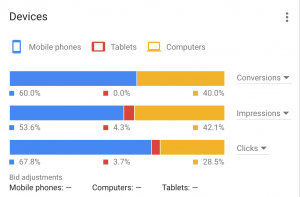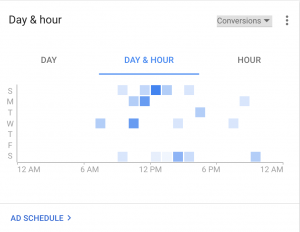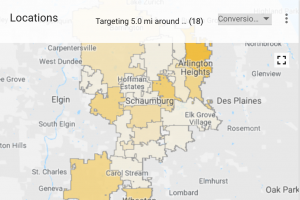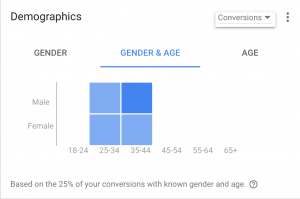Google Ad Campaigns “How to bring your marketing mix modeling into the 21st century”
7 min. read. or listen in 7 min. on iTunes Podcasts at: https://podcasts.apple.com/us/podcast/google-smart-campaigns/id1454401929?i=1000444866039
Introduction
Small and local businesses have no idea about this. They only know they received a coupon from Google for ad campaigns and an offer to get started with a campaign in 5 easy clicks!
Larger companies may have a VP Marketing or Digital Marketing Director that works on their digital marketing mix. Even if that person has some training and experience with paid search, search engine optimization (not paid), social media, email marketing, broadcast and print; all are different distinct marketing channels. Very few companies have the sophistication to see the interaction between the channels on their Return on Investment / Cost Per Acquisition as a whole. Of course Google Analytics does this, but only if your set up properly from the start.
Mistake: Google Smart Campaigns previously AdWords Express
This morning I was contacted by a respected Chicago based web agency. They are an AMA (American Marketing Association) member who heard me speak at an AMA Chicago Chapter meeting. My new client made the mistake of using a Google “Smart” campaign. *
Previously, Google offered AdWords Express campaigns which have now been replaced by “Smart campaigns.”
Also this morning, Google released a very intelligent research article titled “How to bring your marketing mix into the 21st century.”
I am struck by the polar opposites of what I can only call the stupidity of “smart campaigns” juxtaposed with the intelligence of the article.
What do I mean? See the excerpt below from the article “How to bring your marketing mix modeling into the 21st century.”
Brilliant: Evaluate your media by geography and market
…TV (and radio) buys may run nationally (or across an entire large city like Chicago), but digital ads deliver on demand locally and offer granular reporting. Collect and model your data by market to help you get additional data points that make your model more representative.
Jeff Shatz, VP of marketing effectiveness at Nielsen, explains why this is critical. “The more granular the data, the more variability the statistical model is able to pick up, and the greater ability to tease out true drivers. If only national-level marketing data is used, the model will not be able to account for critical market-level influences that impact whether a purchase is made.” …Assess different elements of your media plan by channel, including ad formats, audience segments, and your campaign’s reach and frequency. From there, you can find stronger connections between your online efforts and your offline sales.”
Solution: Use a Google Certified Partner Expert if you don’t have the expertise yourself.
Warning: Many agencies use deceptive marketing practices and put the Google Partner Badge on their website, but they are NOT certified partners. The only way to be sure is by clicking on the badge. All legit partners have their badge linked to their Google.com profile. US Marketing is: https://www.google.com/partners/agency?id=3825667047
Why? Because the real cost of Google Advertising is not what you pay an agency to properly set up and optimize your Google Ads, it’s what you pay Google for Advertising! Most agencies will charge you 15% to 20% of your advertising spend, but if your campaigns are not set up and optimized weekly you can easily waste far more money than you save by not having an expert.
Unfortunately, Google’s smart campaigns do not allow you to make bid adjustments to make sure your ads show up better for granular geos proven to convert better for your products or services. Nor do they allow you to set up time time sensitive promotions, adjust for audiences, demographics, household income, devices (mobile vs computer vs tablet). You are being asked to trust Google’s machine learning to do this for you. Unfortunately, the initial set up is crucial to the “machine” learning!
As my friend and colleague, one of the original co-founders of Google Ads, Frederick Vallaeys says in his new book “Digital Marketing in and AI World:”
If you decide to go the smart campaign route, it can seem there will be little hands-on management to be done after the launch. Even with smart campaigns, though, you can almost always drive better results by setting up multiple campaigns with different goals and targets…the smart system didn’t adjust your bids quickly enough. Human intervention was required… When PPC professionals add their own human intelligence, and creativity to the “smart” system you get better results.”
Example from one of US Marketing’s clients below shows a geo heat map by conversion, device conversions, day and hour conversions and demographics. We actively optimize 3 times per week around all of these and report to our clients on the interaction between channels. This results in optimal performance


*How Smart Google Campaigns Work (according to Google)
When you sign up for a Smart campaign, you’ll write an ad that describes your business. You’ll also describe your business’s product or service and set a budget. Your ad is what potential customers will see when they search for businesses like yours on Google or Google Maps.
Your Smart ad can appear when potential customers in your targeted geographic area search for phrases related to your business on Google or Google Maps. Your ad can also appear for people who are outside of your neighborhood, but who include terms related to your business as well as your business location in their searches.


